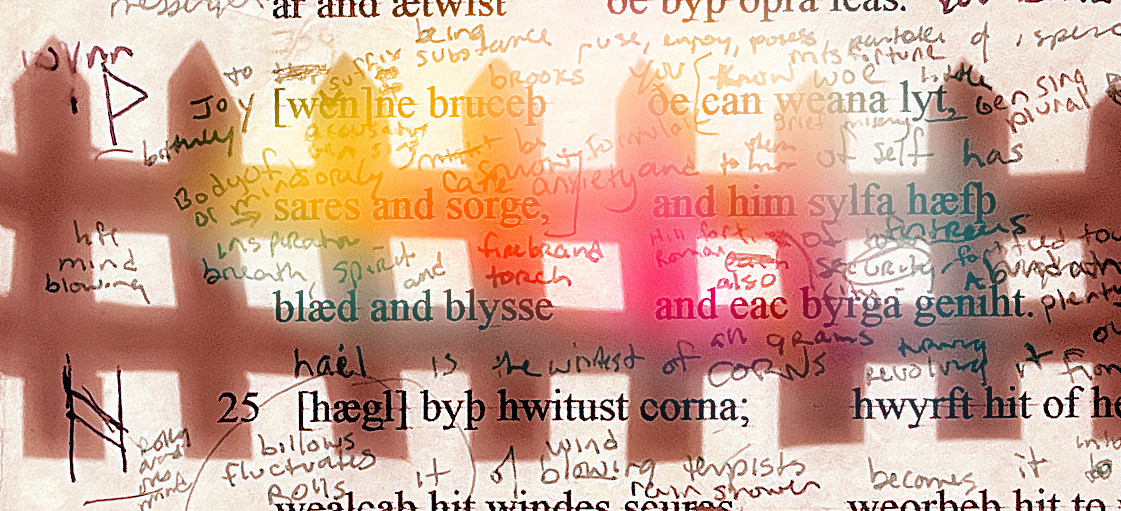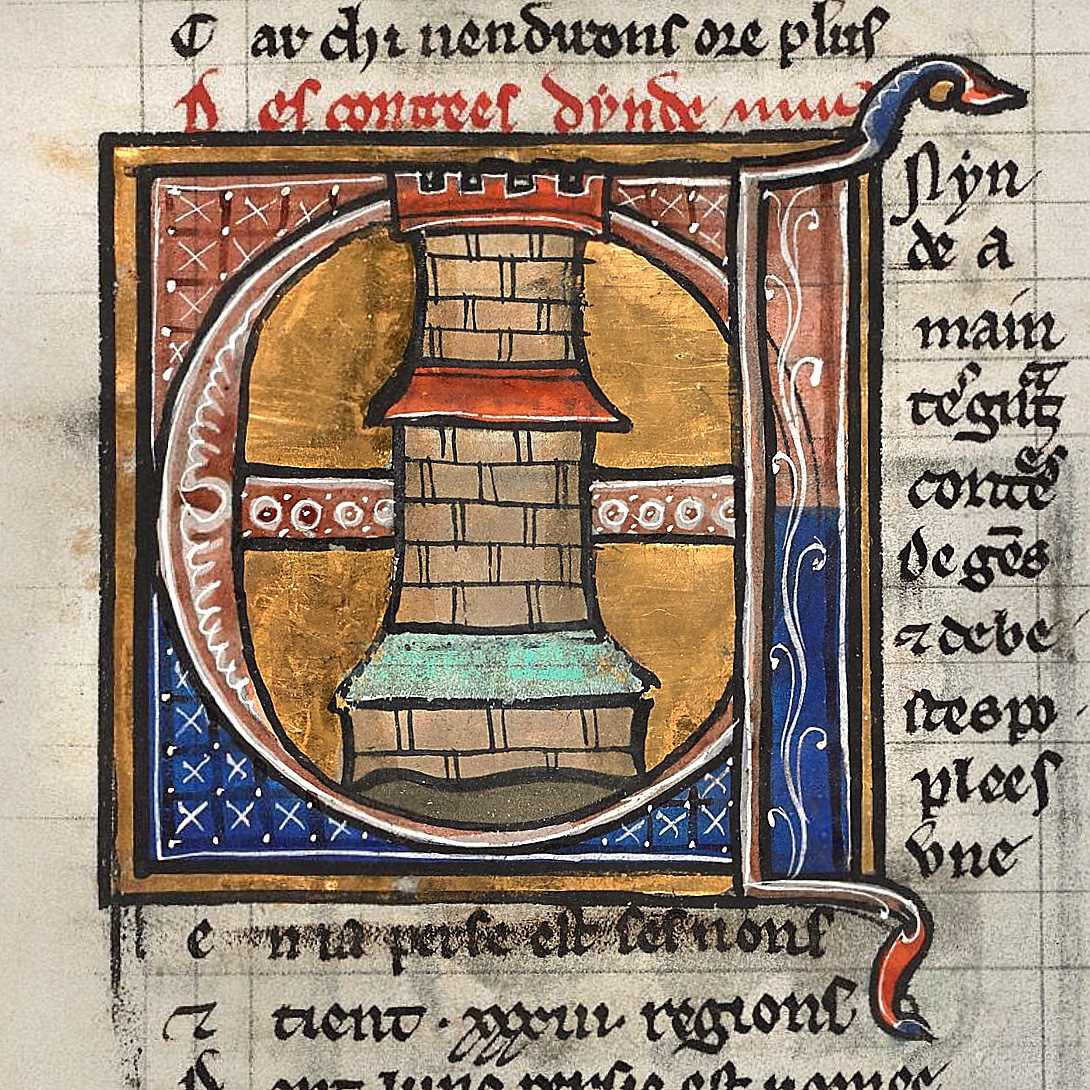 The Wyn stanza breaks with the usual byþ beginning: it starts with ne. Ne means not, or no. It can be used as a conjunction too, but here ne is neither this nor that. Old English is an inflected language meaning it uses different prefixes and suffixes to change a word’s grammatical usage in a sentence. The Wyn rune often shows up in manuscripts as a grammalogue (a single symbol used to represent an entire word) with a suffix attached, like this: ᚹne instead of wynne, meaning “of joy.” Th ne at the start of this stanza is a suffix, not a complete word and not a negation. Wyn starts out with a note of joy!
The Wyn stanza breaks with the usual byþ beginning: it starts with ne. Ne means not, or no. It can be used as a conjunction too, but here ne is neither this nor that. Old English is an inflected language meaning it uses different prefixes and suffixes to change a word’s grammatical usage in a sentence. The Wyn rune often shows up in manuscripts as a grammalogue (a single symbol used to represent an entire word) with a suffix attached, like this: ᚹne instead of wynne, meaning “of joy.” Th ne at the start of this stanza is a suffix, not a complete word and not a negation. Wyn starts out with a note of joy!
Usually the mood of Old English poetry is not joyfulness — it tends toward the gloomy, but there’s still plenty of wyn in it, particularly in the Rune Poem where the word wyn occurs six times. What makes the singers of the Rune Poem joyful? In this stanza it’s the security of living in a community. Nobody wants to be out in the wilderness on their own, and what better to secure a community than a byrga. A byrga is a fort, a walled town, a place of prosperity with valuable goods that need physical, visible, protection. King Alfred built plenty of these along the coasts to protect British goods from Viking invaders. During the time of the Rune poem, a few hundred years before Alfred (king from 871 to 886) a byrga was what to call an old iron age hill fort, and in particular it was the word for a Roman fort. Coastal piracy had been a thing since the Romans showed up in Britain with their trade routes, and coastal forts built to protect the goods coming and going from shipping towns became an important part of the landscape. This was particularly true after the third century when Rome shifted much of their military away from Britain to protect their holdings in other areas. When the Romans left Britain altogether at the turn of the fifth century, the people kept up the practice of building fortifications for their market towns, surrounding them with high hedges, fences, or walls. People prosper when they have a safe place to keep their goods. No wonder they were happy.



